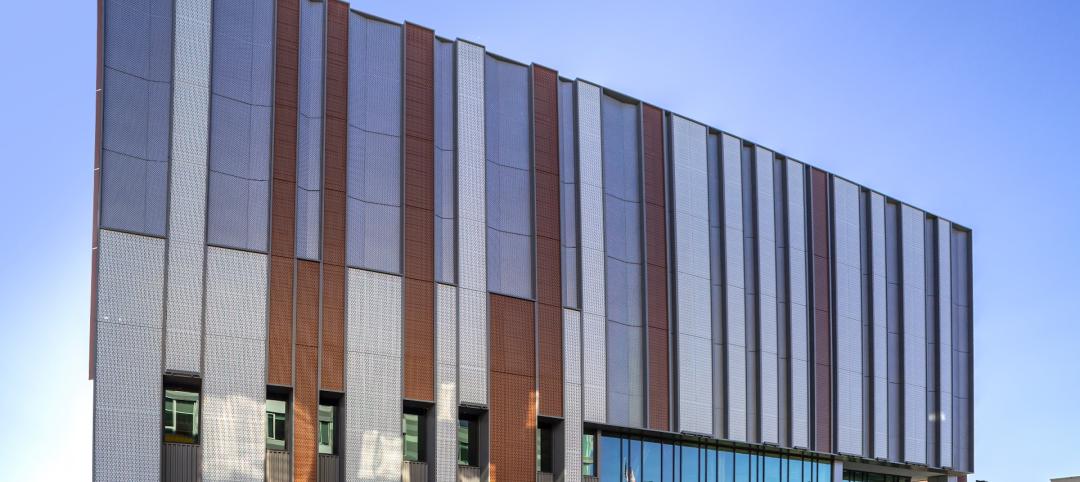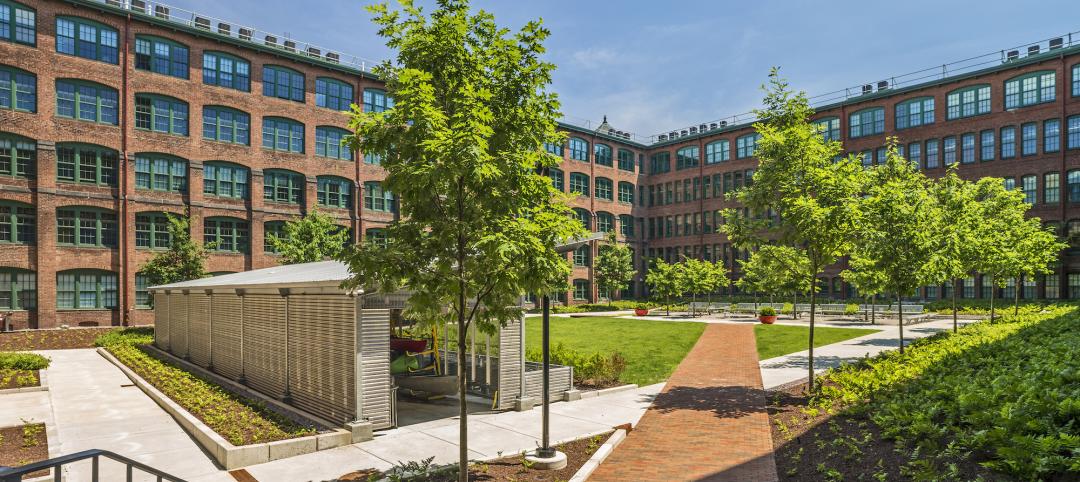See-through and Safe

Failure modes of glass systems under the extreme heat and pressures of building fires are reasonably well known, yet still hard to predict. In a recent fire simulation on a three-story structure built in India and studied by Underwriters Laboratories, the façade system of toughened glass and aluminum composite panels performed better than expected. That is, the glass did: As the aluminum cladding’s window frames deformed and expanded under heat, “the glass panels did not break due to fire but fell to the ground in intact form,” wrote the captivated research team.
LEARNING OBJECTIVES
After reading this article, you should be able to:
-
DESCRIBE the safety and security benefits of fire-rated glazing and window systems.
-
DISCUSS the opportunities and limitations of fire-rated glazing applications.
-
COMPARE the competing priorities, codes, and standards related to the specification and detailing of transparent enclosures.
-
LIST and contrast the systems and products used for fire-rate glass assemblies.
| Sponsored by: |  |
More Campus Related Content
Interior design/Interior architecture
U.S. healthcare building sector trends and innovations for 2024-2025
As new medicines, treatment regimens, and clinical protocols radically alter the medical world, facilities and building environments in which they…
 course credit: 1.0 AIA LU/HSW
course credit: 1.0 AIA LU/HSW
Provided By: BD+C
Structural
Waterproofing deep foundations for new construction
Below-grade waterproofing systems can be critical features of building enclosure design, particularly when the structure has a deep foundation. As…
 course credit: 1.0 AIA LU/HSW
course credit: 1.0 AIA LU/HSW
Interior design/Interior architecture
Performance-based facilities for performing arts boost the bottom line
New technologies, innovations, and tools are opening doors for building teams interested in better and yet less-expensive performing arts facilities…
 course credit: 1.0 AIA LU
course credit: 1.0 AIA LU
Exterior
For the Multifamily Sector, Product Innovations Boost Design and Construction Success
It seems fitting that wider adoption of thin-shell concrete, a technology popular worldwide but somehow unfavored in the U.S., has resulted from the…
 course credit: 1.0 AIA LU/HSW
course credit: 1.0 AIA LU/HSW
Provided By: BD+C
Exterior
Fire safety considerations for cantilevered buildings [AIA course]
Cantilevered buildings seem to be everywhere in New York City these days, as developers and architects strive to maximize space, views, and natural…
 course credit: 1.0 AIA LU/HSW
course credit: 1.0 AIA LU/HSW
Provided By: BD+C
Exterior
4 steps to a better building enclosure
Dividing the outside environment from the interior, the building enclosure is one of the most important parts of the structure. The enclosure not…
 course credit: 1.0 AIA LU/HSW
course credit: 1.0 AIA LU/HSW
Provided By: BD+C
With affordability and innovation for all: Multifamily housing ideas break barriers
With a growing need for multifamily housing solutions at all income levels, the U.S. market is seeing a proliferation of inventive projects.…
 course credit: 1.0 AIA LU/HSW
course credit: 1.0 AIA LU/HSW
Provided By: BD+C
Exterior
Metal cladding trends and innovations
Metal cladding is on a growth trajectory globally. This is reflected in rising demand for rainscreen cladding, which market research firm VMR values…
 course credit: 1.0 AIA LU
course credit: 1.0 AIA LU
Provided By: BD+C
Structural
Flood protection: What building owners need to know to protect their properties
Historically, flooding is one of the costliest natural disasters in the United States on an annual basis. Flood Insurance Rate Maps (FIRMs) attempt…
 course credit: 1.0 AIA LU/HSW
course credit: 1.0 AIA LU/HSW
Provided By: BD+C
Multifamily housing/Apartments/Condominiums
Urban housing revival: 3 creative multifamily housing renovations
Bruner/Cott’s AIA award-winning inaugural project, the 1974 transformation of Boston’s expiring Chickering & Sons Piano Factory into the Piano…















